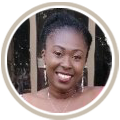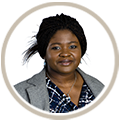-
Governance advisory
We guide boards and management teams in frameworks, team processes and leadership dynamics to deliver sustainable value.
-
Financial services advisory
Get market-driven expertise to achieve your goals in banking, insurance, capital markets, and investment management.
-
Business risk services
Our market-driven expertise helps firms keep growing and manage risk in an evolving regulatory landscape.
-
Risk
Meet risks with confidence and transform your business – we support you to manage risk and deliver on your goals.
-
Economic consulting
Bespoke guidance grounded in complex economic theory and practical sector insight to help you make the right decisions.
-
Government and public sector
Experience and expertise in delivering quality public sector advisory and audits.
-
Business consulting
Partnering with you to deliver sustainable business change that helps you realise your ambitions.
-
Transaction advisory services
Whether buying or selling, we help you get the deal done with our comprehensive range of transaction advisory services.
-
Financial accounting advisory services (FAAS)
Our FAAS team can support your finance function with the flexible resource they need to get results.
-
Corporate finance advisory
Building a business is never easy. We help you maximise the value of your business and find the right option.
-
Valuations
Help to understand or support the valuation of a business or asset.
-
Insolvency and global asset recovery
We provide asset tracing and seamless cross-border global recovery for clients.
-
Forensic and investigation services
Market-driven expertise in investigations, dispute resolution and digital forensics.
-
Restructuring
Our restructuring team help lenders, investors and management navigate contingency plans, restructuring and insolvency.
-
Transformation consulting
Is business transformation a priority for your organisation? Our expert insight and guidance can help you achieve it.
-
Pensions assurance
A tailored service that responds to evolving risks and regulations.
-
Accounting services
Optimise your growth with expert accounting services. Contact us today.
-
Royalty and intellectual property (IP) audits
Enhance IP asset protection with our royalty and IP audit services. Expertise in licensing, revenue detection, and compliance improvements.

-
Business consulting
Partnering with you to deliver sustainable business change that helps you realise your ambitions.
-
Corporate Simplification
Release value, reduce compliance complexity, and improve tax efficiency by streamlining your group structure.
-
Economic consulting
Bespoke guidance grounded in complex economic theory and practical sector insight to help you make the right decisions.
-
Financial accounting advisory services (FAAS)
Our FAAS team can support your finance function with the flexible resource they need to get results.
-
Governance advisory
We guide boards and management teams in frameworks, team processes and leadership dynamics to deliver sustainable value.
-
International
Unlock global opportunities with our local expertise and worldwide reach.
-
People advisory
Driving business performance through people strategy and culture.
-
Strategy Group
Successful business strategy is rooted in a clear understanding of the market, customer segmentation and how purchase decisions vary.
-
Respond: Data breach, incident response and computer forensics
Are you prepared for a cyber failure? We can help you avoid data breaches and offer support if the worst happens.
-
Comply: Cyber security regulation and compliance
Cyber security regulation and compliance is constantly evolving. Our team can support you through the digital landscape.
-
Protect: Cyber security strategy, testing and risk assessment
Cyber security threats are constantly evolving. We’ll work with you to develop and test robust people, process and technology defences to protect your data and information assets.

-
Corporate finance advisory
Building a business is never easy. We help you maximise the value of your business and find the right option.
-
Debt advisory
Working with borrowers and private equity financial sponsors on raising and refinancing debt. We can help you find the right lender and type of debt products.
-
Financial accounting advisory services (FAAS)
Our FAAS team can support your finance function with the flexible resource they need to get results.
-
Financial modelling services
Financial modelling that helps you wrestle with your most pressing business decisions.
-
Operational deal services
Enabling transaction goals through due diligence, integration, separation, and other complex change.
-
Our credentials
Search our transactions to see our experience in your sector and explore the deals advisory services we've delivered.
-
Transaction advisory services
Whether buying or selling, we help you get the deal done with our comprehensive range of transaction advisory services.
-
Valuations
Help to understand or support the valuation of a business or asset.
-
The ESG agenda
Shape your ESG agenda by identifying the right metrics, sustainable development and potential business value impact.
-
ESG driven business transition
Whatever your ESG strategy, we can support your organisation as it evolves while maximising efficiency and profitability.
-
ESG programme and change management
Do you have the right capabilities to drive the delivery of your ESG strategy to realise your targets?
-
ESG risk management
You must protect, comply, understand and influence to successfully manage the risk involved with ESG issues. We can help.
-
ESG strategy, risk and opportunity identification
We can help you clearly define your ESG Strategy, with the risks and opportunities identified and managed.
-
Create value through effective ESG communication
Building trust and engagement with your stakeholders on your ESG strategy.
-
ESG metrics, targets and disclosures
The pressure to report your ESG progress is growing. Do your targets measure up?
-
ESG governance, leadership and culture framework
Make the most of ESG opportunities by effectively embedding your strategy across your organisation.
-
ESG and non-financial assurance
Support your board to be confident in supplying robust information that withstands scrutiny.
-
Transition planning to net zero
Supporting your organisation in the transition to net zero.
-
Actuarial and insurance consulting
We consult extensively to the life insurance, general insurance, health insurance and pensions sectors.
-
Business risk services
Our market-driven expertise helps firms keep growing and manage risk in an evolving regulatory landscape.
-
Financial crime
Helping you fight financial crime in a constantly changing environment
-
Financial services business consulting
Leverage our diverse capabilities to manage challenges and take opportunities: from assurance to transformation
-
Financial services tax
Helping financial services firms navigate the global financial services and funds tax landscape.
-
Regulatory and compliance
Providing an exceptional level of regulatory and compliance to firms across the financial services industry.
-
Corporate intelligence
Corporate intelligence often involves cross-border complexities. Our experienced team can offer support.
-
Litigation support
Industry-wide litigation support and investigation services for lawyers and law firms.
-
Disputes advisory
Advising on quantum, accounting and financial issues in commercial disputes.
-
Forensic investigations and special situations
Do you need clarity in an uncertain situation? If you're accused of wrongdoing we can help you get the facts right.
-
Forensic data analytics
Our forensic data analytics team are helping businesses sift the truth from their data. See how we can help your firm.
-
Monitoring trustee and competition services
Monitoring trustee services to competition, financial and regulatory bodies.
-
Financial crime
Supporting your fight against financial crime in an ever-changing environment
-
Whistleblowing and investigation support
Whistleblowing frameworks provide many benefits – find out how to build trust and manage risks in a confidential, cost-effective, robust way.
-
Public sector advisory
To deliver excellent public services, local and central government need specialist support.
-
Public sector consulting
Helping public sector organisations maintain oversight of services and understand what's happening on the ground.
-
Public sector audit and assurance
As a leading UK auditor, we have unparalleled insights into the risks, challenges and opportunities that you face.
-
Competition damages and class actions
Helping you recover damages owed from anti-competitive practices.
-
Contentious estates and family disputes
We manage complex and sensitive disputes through to resolution.
-
Digital Asset Recovery
Get guidance and technical expertise on digital finance and cryptoasset recovery from our dedicated crypto hub.
-
Grant Thornton Offshore
Grant Thornton Offshore is our one-stop global solution for insolvency, asset recovery, restructuring and forensics services.
-
Insolvency Act Portal
Case information and published reports on insolvency cases handled by Grant Thornton UK LLP.
-
Litigation support
Industry-wide litigation support and investigation services for lawyers and law firms.
-
Personal insolvency
We can support you to maximise personal insolvency recovery and seek appropriate debt relief.
-
South Asia business group
We help Indian companies expand into the UK and invest globally. We also help UK companies invest and operate in India.
-
US business group
Optimise your trans-Atlantic operations with local knowledge and global reach.
-
Japan business group
Bridging the commercial and cultural divide and supporting your ambitions across Japan and the UK.
-
Africa business group
Connecting you to the right local teams in the UK, Africa, and the relevant offshore centres.
-
China-Britain business group
Supporting your operations across the China – UK economic corridor.
-
Asset based lending advisory
Helping lenders, their clients and other stakeholders navigate the complexities of ABL.
-
Contingency planning and administrations
In times of financial difficulty, it is vital that directors explore all the options that are available to them, including having a robust ‘Plan B’.
-
Corporate restructuring
Corporate restructuring can be a difficult time. Let our team make the process simple and as stress-free as possible.
-
Creditor and lender advisory
Whether you're a creditor or lender, complex restructurings depend on pragmatic commercial advice
-
Debt advisory
Our debt advisory team can find the right lender to help you in restructuring. Find out how our experts can support you.
-
Financial services restructuring and insolvency
Financial services restructuring and insolvency is a competitive marketplace. Our team can help you navigate this space.
-
Pensions advisory services
DB pension-schemes need a balanced approach that manages risk for trustees and sponsors in an uncertain economy.
-
Restructuring and insolvency tax
Tax will often be crucial in a plan to restructure a distressed business. Our team can guide you through the process.
-
Restructuring Plans
Market leading experience in advising companies and creditors in Restructuring Plan processes.

-
Artificial intelligence
Our approach to the design, development, and deployment of AI systems can assist with your compliance and regulation.
-
Controls advisory
Build a robust internal control environment in a changing world.
-
Data assurance and analytics
Enhancing your data processes, tools and internal capabilities to help you make decisions on managing risk and controls.
-
Enterprise risk management
Understand and embrace enterprise risk management – we help you develop and connect risk thinking to your objectives.
-
Internal audit services
Internal audit services that deliver the value and impact they should.
-
Managing risk and realising ESG opportunities
Assess and assure risk and opportunities across ESG with an expert, commercial and pragmatic approach.
-
Project, programme, and portfolio assurance
Successfully delivering projects and programmes include preparing for the wider impact on your business.
-
Service organisation controls report
Independent assurance provides confidence to your customers in relation to your services and control environment.
-
Supplier and contract assurance
Clarity around key supplier relationships: focusing on risk, cost, and operational performance.
-
Technology risk services
IT internal audits and technology risk assurance projects that help you manage your technology risks effectively.

-
Capital allowances (tax depreciation)
Advisory and tools to help you realise opportunities in capital allowances.
-
Corporate tax
Helping companies manage corporate tax affairs: delivering actionable guidance to take opportunities and mitigate risk.
-
Employer solutions
We will help you deliver value through your employees, offering pragmatic employer solutions to increasing costs.
-
Financial services tax
Helping financial services firms navigate the global financial services and funds tax landscape.
-
Indirect tax
Businesses face complex ever changing VAT regimes, guidance and legislation. We can help you navigate these challenges.
-
International tax
Real-world international tax advice to help you navigate a changing global tax landscape.
-
Our approach to tax
We advise clients on tax law in the UK and, where relevant, other jurisdictions.
-
Private tax
Tax experts for entrepreneurs, families and private business. For now and the long term.
-
Real estate tax
Stay ahead of real estate tax changes with holistic, tax-efficient solutions.
-
Research and development tax incentives
We can help you prepare optimised and robust research and development tax claims.
-
Tax dispute resolution
We make it simple to stay compliant and avoid HMRC tax disputes
-
Tax risk management
We work with you to develop effective tax risk management strategies.
-
Skills and training
Get the right support to deliver corporate and vocational training that leads the way in an expanding market.
-
Private education
Insight and guidance for all businesses in the private education sector: from early years to higher education and edtech.
-
Facilities management and property services
Get insight and strategic support to take opportunities that protect resilience and drive UK and international growth.
-
Recruitment
Helping recruitment companies take opportunities to achieve their goals in a market where talent and skills are key.
-
Food and beverage (F&B)
We can help you find the right ingredients for growth in your food and beverage business.
-
Travel, tourism and leisure
Tap into our range of support for travel, tourism and leisure businesses in this period of challenge and change.
-
Retail, e-commerce and consumer products
With multiple challenges and opportunities in the fast-evolving retail sector, make sure you are ready for them.
-
Banking
Our expertise and insight can help you respond positively to long term and emerging issues in the banking sector.
-
Capital markets
2020 is a demanding year for capital markets. Working with you, we're architecting the future of the sector.
-
Insurance
Our experienced expert team brings you technical expertise and insight to guide you through insurance sector challenges.
-
Investment management
Embracing innovation and shaping business models for long-term success.
-
Pensions
Pension provision is an essential issue for employers, and the role of the trustee is becoming increasingly challenging.
-
Payments advisory and assurance
Payment service providers need to respond to rapidly evolving technical innovations and increased regulatory scrutiny.

-
Central and devolved government
Helping central and devolved governments deliver change to improve our communities and grow our economies.
-
Infrastructure and transport
Delivering a successful transport or infrastructure project will require you to balance an often complex set of strategic issues.
-
Local government
Helping local government leverage technical and strategic expertise deliver their agendas and improve public services.
-
Regeneration development and housing
We provide commercial and strategic advice to assist your decision making in pursuing your objectives.
-
Health and social care
Sharing insight and knowledge to deliver transformation and improvement to health and social care services.
-
Charities
Supporting you to achieve positive change in the UK charity sector.
-
Education and skills
The education sector has rarely faced more risk or more opportunity to transform. You need to plan for the future.
-
Social housing
We are committed to helping change social housing for the better, and can help you make the most of every opportunity.

-
Technology
We work with dynamic technology companies of all sizes to help them succeed and grow internationally.
-
Telecommunications
Take all opportunities to realise your goals in telecommunications: from business refresh to international expansion.
-
Media
Media companies must stay agile to thrive in today’s highly competitive market – we’re here to support your ambitions.
-
Career development
The support you need will vary throughout your career, here are just some of the ways we'll support you to you excel with us.
-
How we work
Our approach to how we work, ensures that when we are making choices about how, where or when we work, we have the support and tools we need.
-
Reward and benefits
We are committed to building a culture where our people have access to the necessary benefits to help promote a healthy lifestyle and thrive.
-
Inclusion and diversity
Included and valued for your difference is how everyone should feel at work. Not just because it’s right, but because we’re all at our best when we’re able to be ourselves.
-
ESG: environment and community impact
Our ESG framework enables responsible, sustainable, and ethical operations. We prioritise the environment, our broader societal impact, and our firm's governance to protect the planet, foster inclusivity and wellbeing, support our communities, and bolster our firm's resilience.
-
What we do
It’s an exciting time to be joining Grant Thornton, especially as a trainee at the start of your career. Learn about our teams and the work we do.
-
Life as a trainee
Everything you need to know about life as a trainee, from the experiences you'll get to the skills you need.
-
Employability hub
Our employability hub is designed to help you feel prepared for the application process, and guide you through the decisions you will need to make throughout.
-
Our programmes
Whether you are looking to join us straight from school or with a degree, or even looking for some work experience, we have a programme that is right for you.
-
Parents, carers and teachers hub
Access information and support to help inform career discussions with your young people.
-
FAQs
We hope you can find all the information you need on our website, but to help we've collated a few of the questions we hear quite frequently when speaking to candidates.
-
Advisory
Our advisory practice provides organisations with the advice and solutions they need to unlock sustainable growth and navigate complex risks and challenges.
-
Audit
Every day our audit teams help people in businesses and communities to do what is right and achieve their goals.
-
Tax
The tax landscape is evolving, and our clients need us more than ever to navigate the complexities with them.
-
Central Client Service
From finance and information systems, to marketing and people teams we have a diverse range of teams supporting our business.
-
Our recruitment process
We strive to ensure our interview process is barrier free and sets you up for success, as well as being wholly inclusive and robust. Learn about our process here.
-
International hiring
Our international talent is an important part of our firm, joining us you will be joining a growing community of international hires.
-
Armed forces
As an Armed Forces Friendly organisation we are proud to support members of the Armed Forces Community as they develop their career outside of the Armed Forces.

Octavia Tenga
"I’m Sierra Leonean born and bred. In my childhood, I explored rivers and spent lots of time visiting and learning from neighbours. Because of this, I’m very welcoming and trusting of people, which can be positive and negative!
I have some bad memories of school back home, as we were forced to speak English and punished if not. This meant that I spoke very little as a child and people used to assume I was a shy person.
After moving to the UK, I noticed how different the British sense of humour was, and that people didn’t seem to understand mine!
Sierra Leoneans love to throw a party for every situation, and what’s a party without food? People attend parties just for the food sometimes! The food that most reminds me most of home is peanuts, which were an essential part of every evening at my grandad’s house. My grandad and all of the adults would sit on the porch eating peanuts, chatting through the night, while I would move from lap to lap until I fell asleep.
One person I look up to from my country is Madam Yoko. She was a tribe leader in a time when women weren’t considered able to lead, but was well respected and managed to expand the tribe. She inspires me not to allow my physical appearance or others’ biases stop me from aiming high.
I recommend visiting Banana Island, which is one of Sierra Leone’s many small islands. I haven’t been back there since I left as a child, so would love to visit again as an adult to explore the nature and try some foods I haven’t had in years.
I’m proud to be Sierra Leonean because even though we are a small country with very few people, whenever I meet another Sierra Leonean, they become my family."

Jemima Ankuma
"I was born and raised in Ghana by my late grandmother and auntie in a home filled with love, security, and great memories. I left a sheltered upper-middle class life to join my family in the UK. From playing with kids in my street to listening to 'kweku ananse' stories from our neighbourhood elders, we had a sense of community, and everyone was welcome. I look up and aspire to be like my grandmother who was loving, caring, honest, and hardworking. She would give the clothes off her back to ensure no one went without. I remember a young man who she taught to read and write. She also funded his education. I was so proud.
Upon moving, I found that British people weren’t as welcoming as Ghanaians, who smile, greet people, and offer help as a norm. On several occasions here, my greetings, smiles and offers were met with hostilities! One time in London, I reached out to help to an elderly lady, but she struck me with her groceries… I learnt not to offer help again!
Ghanaians pride themselves on their authentic cuisines. My favourite Ghanaian dish is waakye (black eyed beans and rice). The famous jollof rice is made in several different countries, and it's still in contention over who makes it best. Nigeria and Ghana are at the forefront of the debate. What I miss most though about Ghana is the warm weather. Even at its hottest, it isn’t as humid as the UK. If you ever visit Ghana, go to Cape Coast Castle and Elmina Castle to learn about the slave trade and what people went through during those times. It’s an eye-opening experience that can’t be compared to any literature or movie.
Everyone enjoys a celebration: with food, drinks, music, and good company at the heart of any occasion. Most of my family are lay musicians, so our get-togethers usually feature praise and worship sessions. Our culture’s welcoming nature and sense of community are why Ghana is known as one of the most peaceful countries in Africa - I am so proud to be a part of this heritage."

Nicole Blake
"I’m half English and half Jamaican. Being mixed race allows me to construct my own cultural identity and sense of what it means to be English. Some assume English is ‘whiteness’, but for people like me, that isn’t true. To me, being English means Notting Hill Carnival, Windrush, the NHS, the Queen, Idris Elba, Marcus Rashford, gay bars in Dalston, Caribbean cook shops in Tottenham, the Spice Girls, Michaela Coel, vegan fried chicken in Hackney, Sunday roasts, pubs, the Pride march, the Bristol Bus Boycotts, BLM protests, and cockney and yardie accents. Despite a racist legacy that needs confronting, there is such beauty in this tapestry of different cultures.
Bob Marley had a huge impact on Jamaican culture. His music speaks about oppression, the Black diaspora, Black empowerment, freedom, Rastafarianism, spirituality, God, love, and unity. Through his music, he spoke out against political violence in 1970s Jamaica, and was revolutionary - he gave hope to many people. It was inspiring to visit his birthplace in Nine Miles and his former home on Hope Road, and learn more about his legacy, Rastafarianism, and the history of Jamaica.
Food is important to me as it connects me to my nans. Roast potatoes remind me of cooking with my Nanny Lowe, and fried dumplings remind me of going to Nanny Blake’s house in Tottenham. Every Christmas, my family comes together to enjoy a Jamaican breakfast: ackee, saltfish, and fried dumplings with chocolate tea. It's followed by a traditional roast for lunch with a Jamaican twist (think rice and peas with red snapper), and there's plenty of rum punch, Baileys, and Guinness punch all day.
When I was younger, people used to call me a ‘coconut’ and say I ‘talked or acted white’. Those people were wrong. Black identity is multi-layered, complex, and varies between different cultures and countries.
The Black women I look up to are my Nanny Blake and Beyoncé who, in different ways, show me what it means to be a strong Black woman. I’m proud of my Black heritage, I know where I came from, and who I am. I celebrate it every day."

Khaya Chiweshe
"I am Black African, specifically from Zimbabwe, and I’m of dual heritage - Shona on my father’s side, and Ndebele on my mother’s side.
Post-1980 Zimbabwean independence, there were some terrible tribal tensions, so it was an incredibly courageous decision for my parents to fall in love and have a family despite these conflicts. Courage seems to be the byword of my heritage.
When I came to the UK, I moved to what was then a small town called Hemel Hempstead, and my cousin, brother and I were the only Black students when we first started school. It was like we were such a novelty!
I’m most proud of my faith. Faith is the one thing that has got my family through some of the madness of life. It has been demonstrated to us by our grandmother and passed through the generations. The stories I could tell you would blow your mind!
An inspiring woman I look up to the most is my mum – an economic genius who raised three children by herself on a shoestring. Others I also look up to are Joshua Nkomo, Vice President of Zimbabwe in the 1990s, who founded and led the Zimbabwe African People's Union, and Josiah Magama Tongogara, who was a commander of the ZANLA guerrilla army in Rhodesia whose attendance at the Lancaster House conference led to Zimbabwe's independence and end of the white minority rule.
One place everyone should visit in Zimbabwe is Mount Nyangani - there is something inexplicably profound about this place. Victoria Falls is also a must and, of course, Hwange National Park.
What brings my family and my country together the most is food (lots of food), as well as laughter and singing. The food that reminds me most of home is Isitshwala lebhobola – look it up."

Doyin Badewa
"I am Nigerian and a Yoruba, one of the three main Nigerian tribes. I spent the first 10 years of my life in Nigeria, and I was raised with Nigerian values, which make up a big part of who I am today. After leaving Nigeria, I moved to a small town called Ennis, in Ireland, at a time when Ireland was not as diverse as the UK.
It was a huge culture shock for my family to be some of the few Black people in the town. Our names also stood out as different - I’d have to spell my name out to others multiple times only for them to say it back to me incorrectly. One of my sisters even adopted a new name to avoid this.
Despite the odds, and negative press that Nigerians face, I'm most proud of how hardworking, tenacious, and industrious we are. Nigerians in diaspora are making outstanding breakthroughs in education, music, and in the world of business. I’m always inspired being among a group of driven Nigerians who motivate me to do better and want more for myself.
There's a popular saying in Nigerian pidgin-English that says, “Naija no dey carry last”, which means Nigerians are never in last place. I think every one of us that was raised by Nigerian parents can testify that we had one job growing up: go to school and get good grades!
What brings my family together is food and music. When socialising, we dance, catch up on recent songs, and enjoy Nigerian food. My favourite Nigerian dish is jollof rice, which is a staple at every Nigerian party (if you can cook ‘party jollof’ properly, you have really made it in life!). I dare say I haven't met one person that does not like it - it’s a simple dish, but to do it well is an art to master over time. I love traditional foods (which we call ‘swallow') , such as pounded yam and egusi.
One person from my country I look up to is Chimamanda Ngozi Adichie, a Nigerian writer and feminist who has written novels, short stories, and non-fiction. One of my favourite books is 'Half of a Yellow Sun', and tells a story of the Biafran War. It opened my eyes to its effects on Nigeria today. I also love 'Americanah', a story of a Nigerian lady who moved to the US for university, which I find relatable despite living in different countries.
I haven’t explored Nigeria as much I’d like to. Interesting places on my radar are the Olumo Rock and Ushafa Crush Rock. The last time I visited, I saw the Nike Art Gallery in Lagos which holds 8,000 diverse artworks of Nigerian artists and is full of life and culture."

Adebimpe Toby
"I’m Nigerian and, like Doyin, I am from the Yoruba tribe in western Nigeria. Our culture is rich, colourful, and warm. We have a strong work ethic and strong family and community values. This all forms a huge part of who I am and challenges me to always try to do better. Outside of my faith, family is the most important thing to me.
When I moved to the UK, I noticed the difference in how people relate to each other. In Nigeria, people are warm and receptive and it’s common to chat to strangers in public settings. I remember a few instances of striking up friendly conversations with strangers here and receiving strange looks in return. I’ve now adapted to this, but never miss an opportunity to chat to someone if the chance presents itself!
Since being here, I’ve been asked why I travel across continents to celebrate small events, how I’m always happy hosting or never too tired to party. My husband always answers with, “She’s a Yoruba girl, this is what they do".
I’m proud that the Yoruba people are known for their focus on education. We also love to celebrate, and our parties are always big and colourful! The food from home I miss the most is suya (thinly sliced meat seasoned with spices cooked on a charcoal grill). I make it, but it’s not the same as at street stalls.
One person I look up to from my country is Obafemi Awolowo, who was a journalist, lawyer, and politician. He stood out from the crowd by putting the future first (children). He introduced free and compulsory primary education and healthcare for children in western Nigeria and encouraged others to do the same. Today, many people think Yoruba people are the most educated in Nigeria because of Awolowo’s policies and investments in education.
There’s so much outstanding, natural beauty in Nigeria: Ikogosi Springs, Obudu Mountain Resort, Olumo Rock and Mount Patti, where you can see Nigeria's two main rivers from the top. Football is the main sport that unites the country, no matter what tribe people are from.
While the three main tribes are Yoruba, Igbo and Hausa, Nigeria is made up of over 250 tribes with varying cultures, dialects, and traditions. Everyone is a unique blend of their heritage, shaped by their environment, experiences and family, and it's something to be celebrated. I love my unique blend and wouldn’t trade it for anything."
One of the most valuable contributions of our people throughout their Grant Thornton careers is the diverse perspectives that they bring to the firm. We proactively support inclusivity all year round, but Black History Month helps us remember why we celebrate it.



